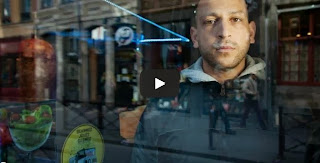Equality Betrayed: Speaking Out Against Ethnic Profiling by French Police

by Marc Krupanski and Zsolt Bobis Open Society Justice Initiative Adji Ahoudian is a French citizen, and an elected member in the office of the mayor of the 19 th arrondissement in Paris. He proudly remembers the day he received his new official I.D., with the Republican motto “Liberty, Equality, Fraternity”. But then, after attending a council meeting one day, he was stopped by the police for an identity check, for no reason. Except maybe that he was black. “It is then that you realize that you belong to the Republic, you live in the Republic, but you aren’t actually a full citizen,” he says. “Instead you are a second-class citizen. You are continually reminded that due to your face, due to your skin color, due to your appearance that you are not really from here—even when you are an elected official of the Republic.” Adji’s story is told in a new report by the Open Society Justice Initiative that looks into the human reality of the ...


